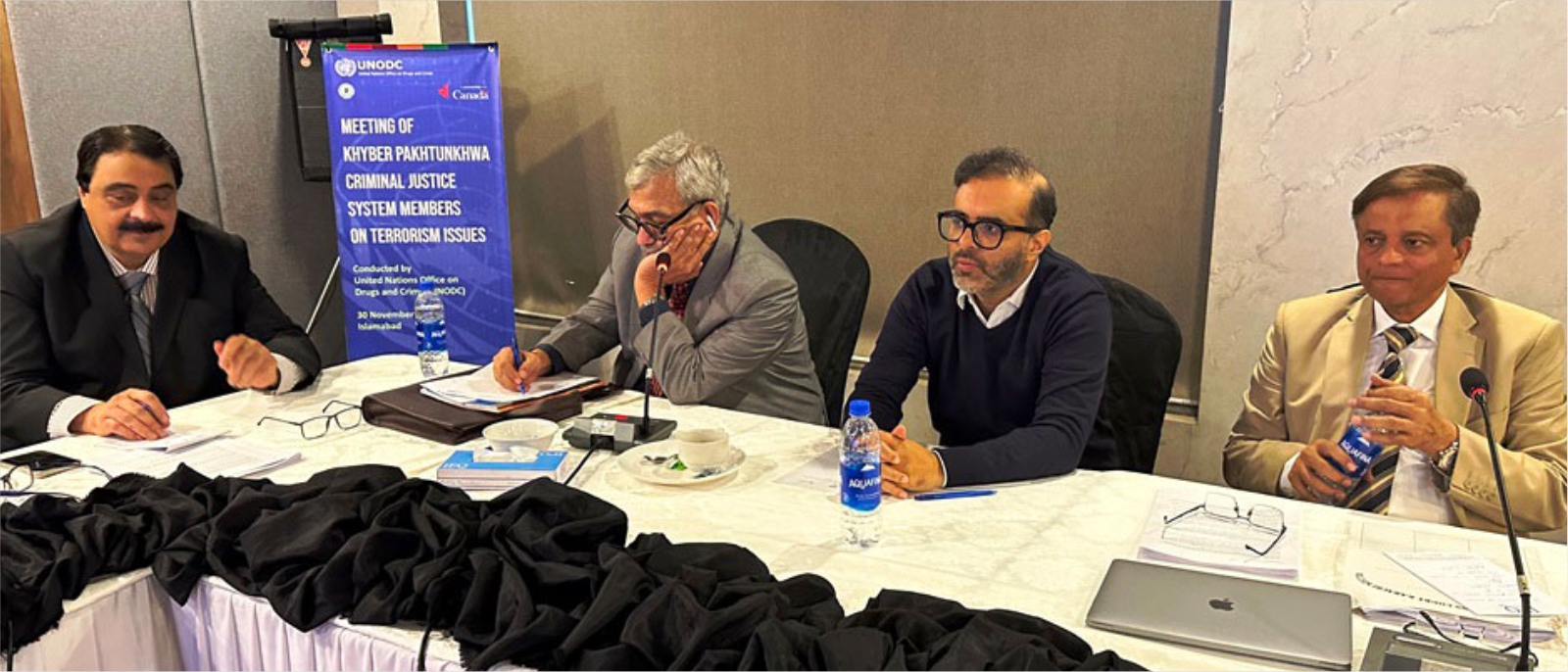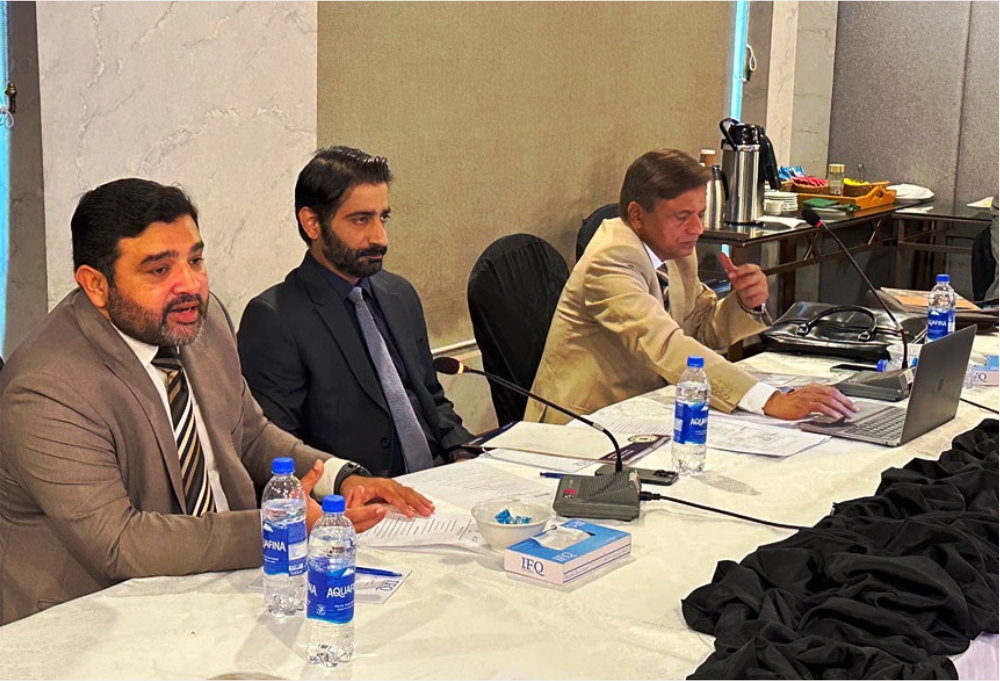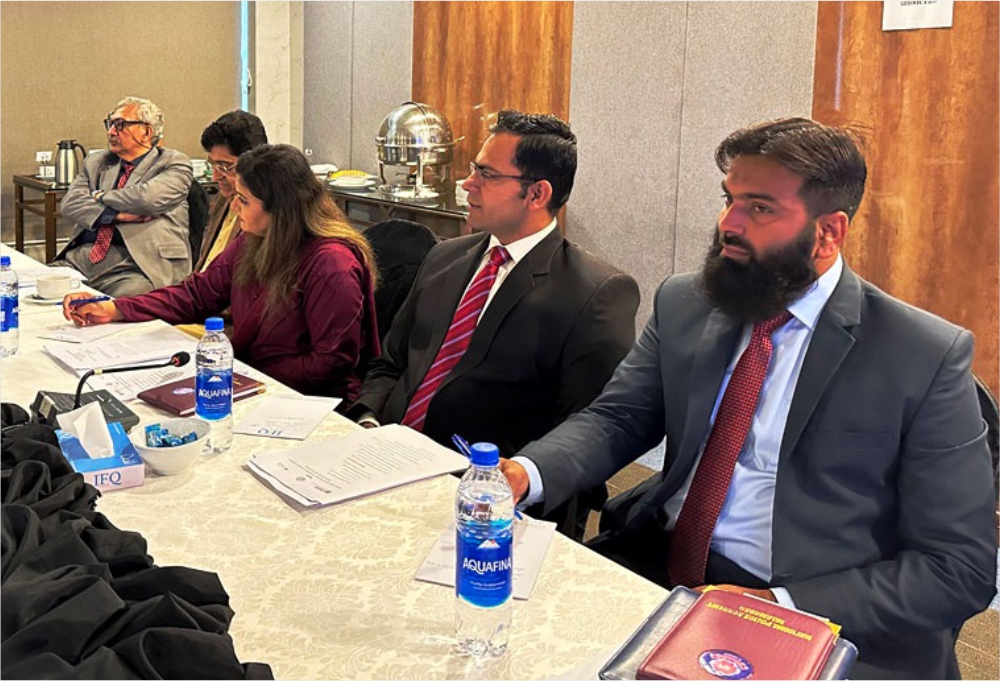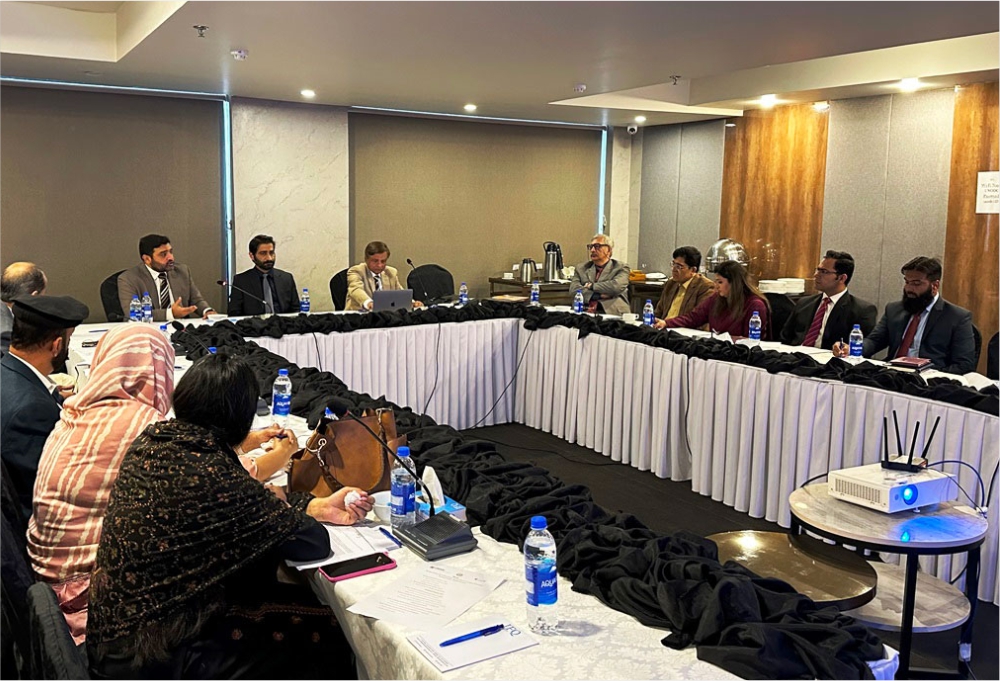
1 December 2023, Islamabad - The United Nations Office on Drugs and Crime (UNODC), with financial support from Global Affairs Canada, organized a one-day meeting of Khyber Pakhtunkhwa Counter Terrorism Officials in Islamabad on November 30, 2023. This meeting brought together key criminal justice system actors to discuss and strategize on counter-terrorism initiatives.
The primary goal of this meeting was to strengthen coordination and collaboration among various criminal justice system actors involved in counter-terrorism efforts. With a focus on current terrorism trends, legal frameworks, inter-agency collaboration, and capacity building, the meeting aimed to build an inclusive approach to combat terrorism in the region. The meeting saw participation from diverse stakeholders, including officials from the National Counter Terrorism Authority (NACTA), representatives from the Khyber Pakhtunkhwa Judiciary, Police, and Prosecution.



The day started with a keynote speech from Director General CT, NACTA, emphasizing the importance of a unified approach to counter-terrorism and the need for continuous adaptation to emerging threats and challenges. The first session, "Terrorism Trends and Analysis," presented online by the Additional Inspector General of Khyber Pakhtunkhwa Police, offered a deep dive into the current state of terrorism in the region. This session was pivotal in providing an updated overview of the evolving threats posed by terrorist groups, their methods of operation, and the challenges they present to national security. It was not just an analysis of recent incidents but also a platform to understand the broader trends in terrorism, including the shift towards digital radicalization. This session aimed to equip the participants with a nuanced understanding of the current threat landscape, which is essential for developing targeted and effective counter-terrorism strategies.
The other sessions like "Strengthening Inter-Agency Collaboration," and "capacity building," focused on the response mechanisms to these threats. "Inter-Agency Collaboration" emphasized the need for different government departments, including intelligence, law enforcement, and prosecution, to work in tandem, ensuring a more coordinated and efficient approach in counter-terrorism cases. The "Capacity Building and Resource Allocation" session in the meeting focused on identifying the training needs of CT officials in KP.
In conclusion, the meeting ended with a clear outline of action points and next steps, charting a path forward for the enhanced coordination of counter-terrorism efforts. The UNODC, in its closing remarks, emphasized the need for sustained collaboration among criminal justice system stakeholders in KP. It reaffirmed its dedication to supporting these initiatives, highlighting the role of continuous dialogue and cooperation among all stakeholders.